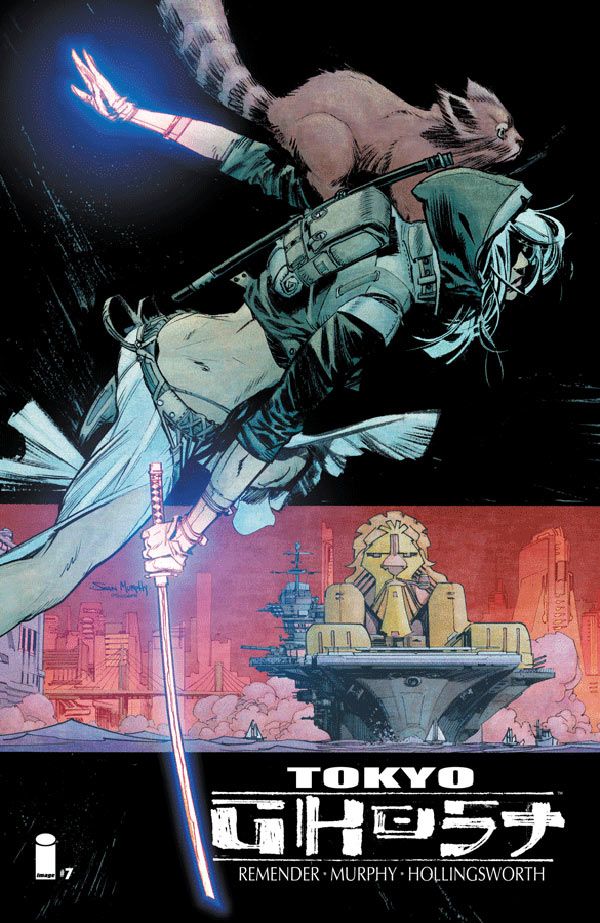Following writer Rick Remender's announcement that "Tokyo Ghost" would end with issue #10, the second story arc takes on an additional sense of urgency as Debbie Decay continues to avenge the destruction of Tokyo by taking out constables across L.A. With this issue, it's clear that the themes of love and addiction will change Debbie's actions as well as those of her former lover Led Dent, the unrepentant tech-addicted constable who has returned to the mindless service of the Flak Corporation.
A year has passed since the first arc ended with Dent destroying Tokyo, and Remender illustrates the cumulative destruction of addiction as Dent begins the issue struggling to recall his life with Debbie and why she left him. His tech-addled brain can't recall or acknowledge that his actions destroyed a city and presumably Debbie along with it.
Remender's social commentary and cautionary lessons don't stop there, but they fit the fast pace of the script so well that they help rather than hinder the story's progress. Flak's outrageous Tokyo-themed ocean liner also represents the culmination of the depravity he plans for the devastated city; as Flak's chosen board the ship following an IQ test that adds some well-timed humor to the action, they are treated to all manner of distractions that Flak justifies with, "We see the damage we're doing. We don't like it. And we still can't stop ourselves."
Sean Murphy and Matt Hollingsworth must be having fun with this title, because their teamwork on the art is stellar. From the vivid colors used for the ocean liner and Dent's memories to the delicately layered shadows surrounding the Tokyo Ghost, Murphy's detailed lines and Hollingsworth's broad palate set an ominous tone from the start that builds tension through the entire issue as Flak's paranoia becomes reality.
Remender uses this issue to set up an inevitable confrontation between Led Dent and Debbie, but it appears that she'll have to take care of a few obstacles first. This comic has received several comparisons to "Blade Runner," and -- while it does represent a futuristic tech-dystopia -- that's where the comparisons end. "Blade Runner" highlighted how alone we are no matter our social status, where "Tokyo Ghost" focuses on the battered relationship of its main characters and challenges us to cheer for them after atrocities that should rob us of hope -- or maybe Remender just wants us to cheer for the inevitable confrontation; it will have to be killer.
"Tokyo Ghost" is only seven issues in; if you seize the opportunity to pick up the first trade and catch up, you'll be glad you did.

